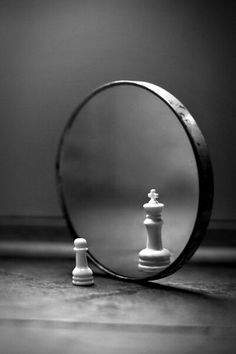 I believe in the power of action/reaction physics. I call these physics The Mirror Theory, and it helps me to understand the emotional acting out I have done toward others since the acting out I do comes back in whatever way catches my attention. If I am kind to others, I feel that kindness in others. If I am critical, criticism is felt.
I believe in the power of action/reaction physics. I call these physics The Mirror Theory, and it helps me to understand the emotional acting out I have done toward others since the acting out I do comes back in whatever way catches my attention. If I am kind to others, I feel that kindness in others. If I am critical, criticism is felt.
Whether I speak of someone I know, someone I’ve read about, heard about, or seen about, the mirror returns regardless. And it returns because emotionally, all of our hearts are one. Therefore, whatever I give to others, I give to myself. Because of these physics, I become feel ill-at-ease as soon as I make another feel ill-at-ease. Ill-at-ease is dis-ease. Dis-ease is disease.
Several years ago, I had twinges in my back. In my effort to heal that pain, I went to a chiropractor. His solution worked temporarily but the twinges continued. Then I took up yoga. Yoga made my body stronger and improved my muscle tone, but the twinges continued. At this point, I decided to see if the mirror theory could help me.
The first question I asked myself was: what does my back represent to my body? Well, it represents the physical support allowing me to walk and function as an upright human being. From there, I went to the concept that if my back was not supporting me in the way it was supposed to, maybe I wasn’t supporting others in the way they needed support? Several questions popped up as I tried to answer this question:
- Am I the friend to others that I want others to be me, or do I nag instead of praise?
- Am I appreciative of the people around me, or am I critical and condescending?
- Am I helpful to co-workers, or do I blame them for all the mistakes that happen?
It didn’t take long to realize that I was not supportive; I was nagging under the guise of constructive criticism. To consciously stay aware of this discovery, I put post-it notes around the house reminding me that I needed to help my friends, encourage my children, and compliment my co-workers whenever possible. Believe it or not, two weeks later, the twinges were gone.
How could my attitude make such a difference? I don’t understand the mechanics of this transformation; I only know it happened. Why didn’t I try this sooner? Because I got distracted by the acting out of others. Finding the answer wasn’t difficult, but it did take honesty, or, the willingness to look at what I was doing instead of what others were doing. I had to remember that when I looked in a mirror, the person I saw was me. Not the people I’m related to, not my friends, not co-workers…. me.
As I have gone on and used this theory more, I’ve learned that thought alone does not create, whether that thought is positive or negative. On the other hand, if I give those thoughts away, or intentionally impose them on another, they do create. This may seem like a small distinction but, in the reality of emotion, it is huge. For instance, if I hold a boomerang in my hand, it may get heavy (negative thought usually does) and it may feel uncomfortable (negative thought always does) but other than that, I don’t create discomfort. On the other hand, if I throw that boomerang out into space, it whips back with horrendous force to the energy it sprang from.
As I live this process, I try not to judge myself; everyone has dark moments once in a while. And since I know that, what I do with my thoughts is the key to emotional stability, I initiate the following routine to get the negative out in a healthy way:
When someone hurts my feelings or makes me angry (pretty much the same thing), I wait until I am alone and then I kick a pillow, pretending the pillow is the person who hurt my feelings. Kicking is often accompanied by a lot of screaming, yelling, and cursing. Not a pretty picture, but after my solitary tantrum, I’m able to look at these emotions and understand what they are. Once I know what they are, I can remember when I gave them to someone else. Until I get them out, they’re too overwhelming to view objectively. When I can’t view them objectively, I view them subjectively. When I view them subjectively, I make other people the source of the problem. When I make others the source of the problem, I want them to change.
More importantly, until I am objective, I don’t have any power over the situation. Power comes from realizing that I am the source of the problem because I have given the problem to someone else. Then I can take a different action to get what I prefer.
